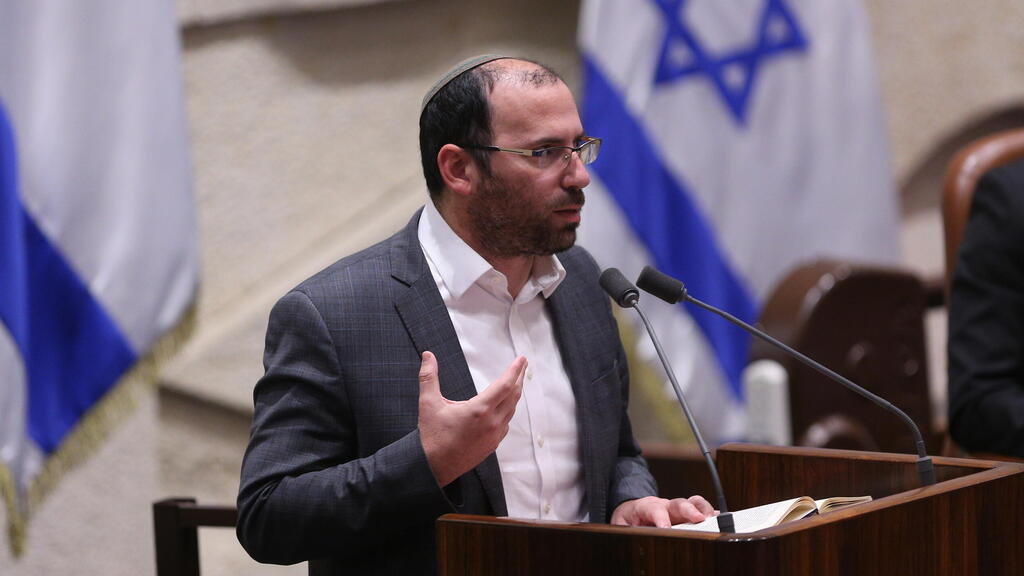Getting your Trinity Audio player ready...
The Supreme Court may soon be hearing one of the most explosive cases in Israel's history on the question of whether it has the authority to strike down Knesset's attempt to restrict its power through Basic Law.
More stories:
A bill to curb the court's use of the reasonableness clause to nullify government decisions and appointments was passed on Monday. The case may end up at the Supreme Court's doorstep next month after several appeals have been filed against the legislation.
4 View gallery


Protesters, the Supreme Court, Benjamin Netanyahu and Yariv Levin
(Photo: JACK GUEZ / AFP, reuters/Amir Cohen/Ronen Zvulun)
This case involves a myriad of complex legal issues, including the position of the Knesset as the constitutive authority that forms the basis of the constitution, the Basic Laws, the status of the government and the coalition, the power dynamics between the Supreme Court and the Knesset, and the trust of Israeli citizens from all ends of the political spectrum in the importance and standing of the Supreme Court.
All these factors have run into turbulence. The government's wish to dismiss Attorney General Gali Baharav-Miara for obstructing its actions and the refusal of Justice Minister Yariv Levin to convene the judge selection committee to replace Supreme Court President Esther Hayut and Justice Anat Baron, who are retiring in October.
In this context, there is a question of whether, given her upcoming retirement, Baron will preside over the debate over the nullification of a Basic Law, an unprecedented move that requires the Supreme Court to marshal a full 11-justice panel.
So far, the Supreme Court has struck down 22 so-called regular laws on the grounds they went against the Basic Laws, or failed to meet constitutional muster. This will be the first time the court will debate on whether to strike down a Basic Law and it may not take long until the second after the attorney general ruled against the so-called Incapacitation Law, according to which a serving prime minister can only be removed from power by a Knesset super majority.
Expressions like "misuse of the Knesset’s constitutive authority" and "the unconstitutional amendment to the constitution" will become the main arguments of these appeals.
Following Israel’s establishment, its founders agreed that the Knesset would also act as a constitutional convention to forge the state's constitution.
The different political tribes in early Israeli society couldn't reach an agreement on many issues, particularly concerning religion and state affairs and different perspectives on Israel's nature as a Jewish and democratic state. Instead, lawmakers enacted Basic Laws, which act as “placeholders” for a constitution and would make up the components of a future one.
These laws, along with Israel’s Declaration of Independence, have since been considered the determining factors of the state's governing system and its organizational and administrative methods.
They also define the rights and obligations of Israeli citizens, shape the relationship between them and state authorities, and establish the norms and rules for enacting laws, adjudication and policy-making.
Over the past months, the attorney general and her deputy Gil Limon made it clear to the Knesset's Constitution, Law and Justice Committee that the Knesset can’t undermine the foundations of Israel’s democracy and the basic values on which the state was founded.
Baharav-Miara and Limon already indicated that they won’t defend the appeals. The person who will defend the appeals before the Supreme Court is Knesset Attorney General Sagit Afek, but the court will also seek Baharav-Miara’s opinion.
In his speech before the committee, Deputy Attorney General Limon emphasized that despite majority rule being one of the basic principles of democracy, there’s another fundamental principle - the separation of powers, which aims to limit the power of each of the three branches of government to prevent them from infringing on the rights of private citizens and the public.
As part of this principle, none of the three branches of government has absolute power or the "final say" on any matter. Instead, there are checks and balances between them, with each subject to the oversight of the other branches through the various tools at their disposal.
As part of these checks and balances, the judiciary conducts a judicial review of the executive branch's actions, including decisions made by the government, the prime minister and his cabinet members.
The way the Constitution, Law and Justice Committee chose - a deliberate avoidance of judicial review based on the decision’s reasonableness - breaks the accepted norms in a democracy as part of the checks and balances among the three branches. Limon further said that the purpose of the amendment is to remove restrictions from the executive branch.
4 View gallery


Constitution, Law and Justice Committee Chair Simcha Rothman
(Photo: Alex Kolomoisky)
"This proposal violates the fundamental principle of the separation of powers that creates checks and balances," Limon noted.
"The approach underlying the proposed law, which calls for the cancellation of the reasonableness standard solely because of the subjective elements that require the exercise of judicial discretion, may not stop at this standard alone but may extend to the proportionality clause or any other legal principle that political officials perceive as limiting their authority."
"The amendments made to the proposed law in recent days only reinforce this concern. Such an approach, in practice, undermines the power of the entire judiciary,” he added.
“The proposal’s implication is, in fact, the grant of unchecked power in the hands of a select few public officials who inherently centralize significant political power and deep influence over the entire public. This creates a kind of judicial 'sanctuary,' enabling unreasonable decision."



